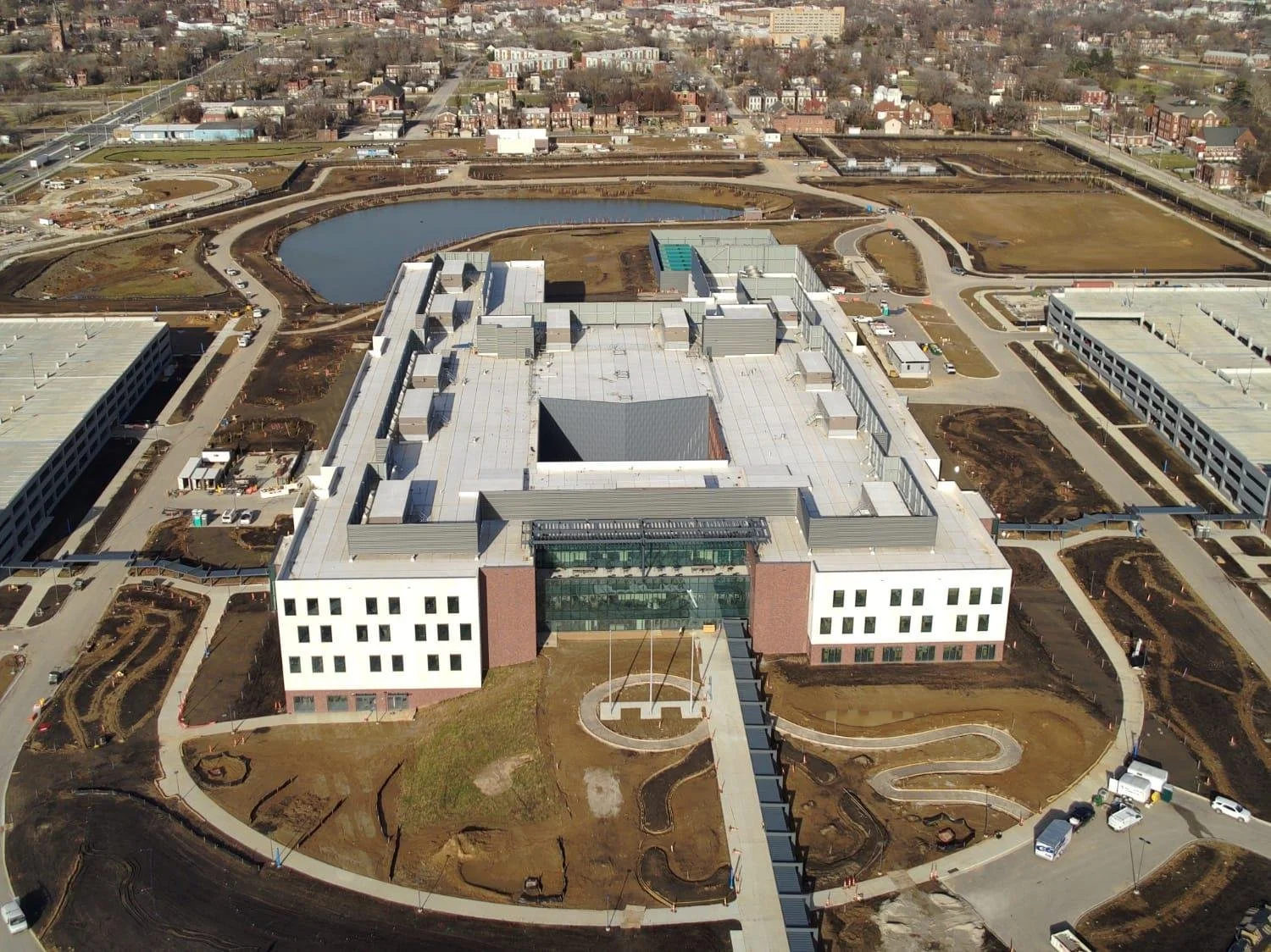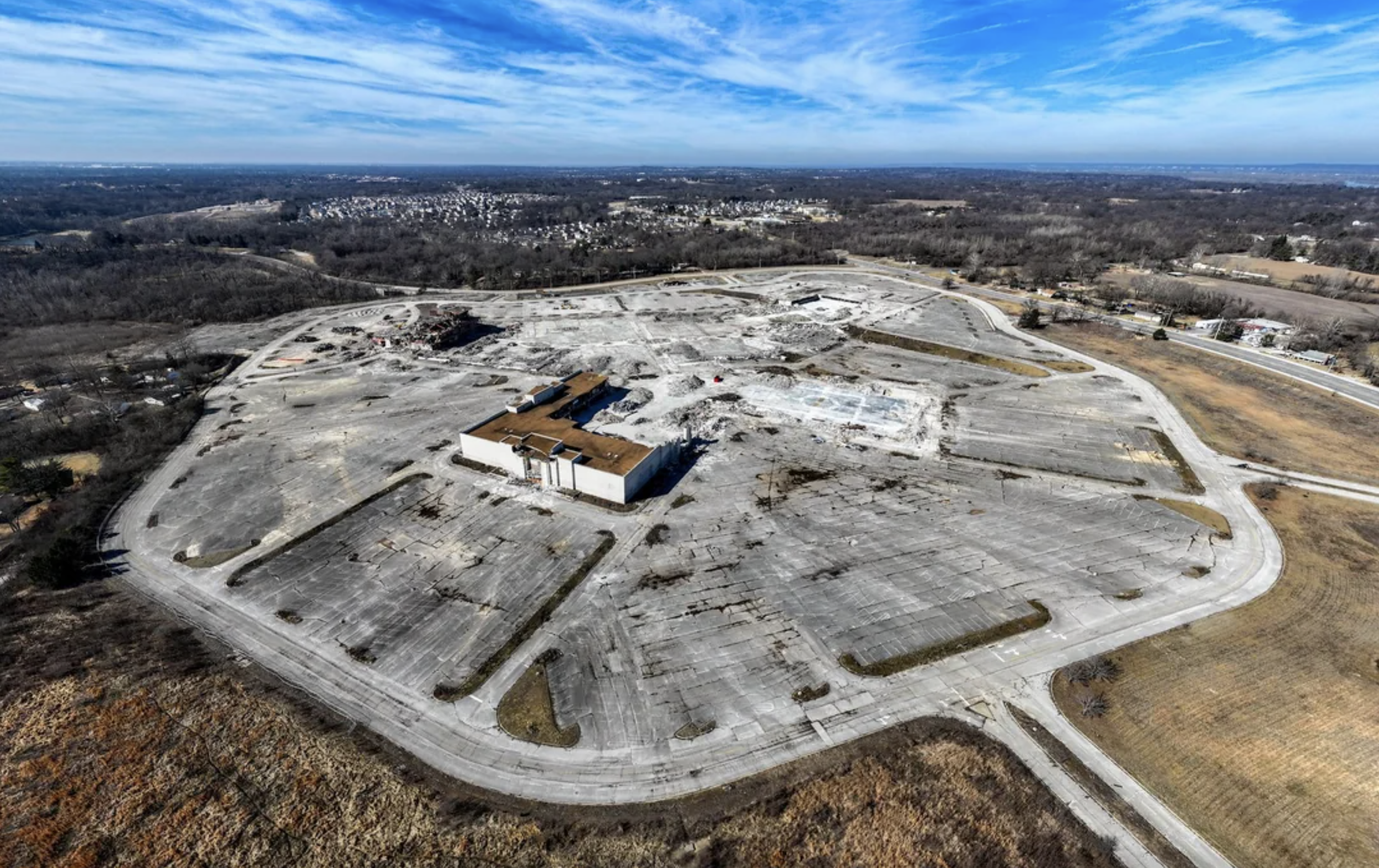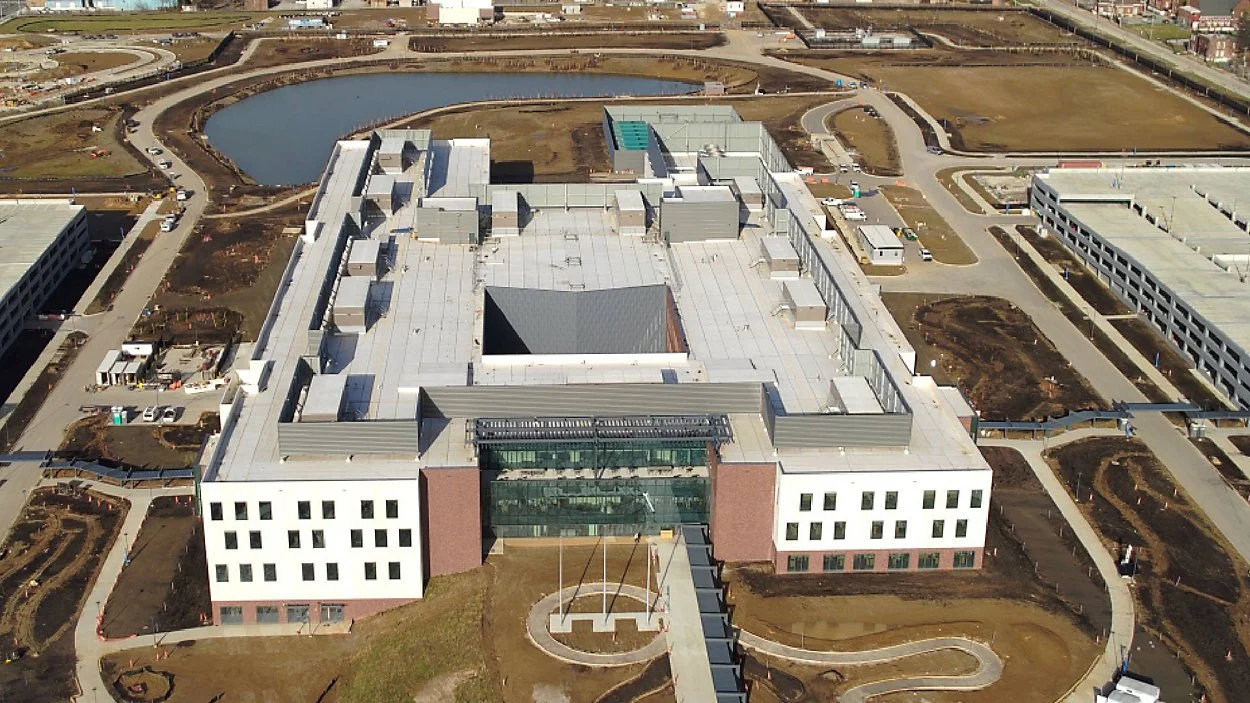Photo credit: MWM STL
Insatiable appetite for commercial real estate continues
The St. Louis-area CRE market is still hungry for more, according to Commercial Real Estate Women (CREW)-St. Louis’ “Industrial Outlook” panelists.
Christie Brinkman, director, design build, Castle Contracting, LLC, moderated the March session as panelists, Cara Weber, Wakeel Rahman and Christy Campbell discussed recent pandemic-related challenges and predictions going forward.
Cara Weber, vice president, business recruitment, Missouri Partnership, said the Partnership is a public/private entity funded by the State of Missouri’s Department of Economic Development and the Hawthorn Foundation to focus on attracting new businesses to the state by functioning as a sales tunnel that includes marketing, business development and project management.
“Our Raise the Bar program is identifying sites for development so the region can control its own destiny,” Weber said.
In the past five years, the Partnership has opened 615 projects and lost 142. Wins by industry include advanced manufacturing, energy solutions, food solutions, logistics and distribution, and office-based space.
“Expansion is incredibly important — about 80 percent of new jobs are coming from expansion,” she said. “I’m excited about the level of project flow so far this year, which has been mostly industrial. We’re seeing a lot of searches for existing buildings, but don’t have a lot available.”
“Retention (of businesses) is the key component. Attraction is our wheelhouse,” Weber said. “We’re getting more opportunities from big OEM businesses.”
Available CRE space is a factor in lost projects, along with whether a business has an existing presence in the area and concerns about logistics, incentives, available workforce, business costs and infrastructure, according to Weber.
“What’s great about Missouri is our transportation resources: rail and river,” she said.
The CRE profession is faced with “trying to meet an almost insatiable demand for commercial real estate,” said Wakeel Rahman, vice president, NorthPoint Development. “The market is very healthy. Retail stepped up to take a lot of space to compete with Amazon.”
E-commerce is driving the market from “just in time” (JIT) to “just in case” (JIC), and the ratio of inventory to sales in the supply chain should increase.
Rahman warned that national headwinds to watch include continued supply chain delays and cost increases for materials and construction, NIMBYism (Not In My Back Yard) attitudes toward industrial properties, entitlement and permitting, and warehouse fatigue.
“St. Louis is still one of the tightest markets,” he said. “Looking forward, we will see an increase in automation and more-affordable systems; new geographies where companies can build; and spending more on infrastructure, which means good things for our industry because it creates improved access.”
The preliminary 2022 first-quarter numbers are encouraging, said Christy Campbell, brokerage associate, Cushman & Wakefield: “2.2 MSF of positive net absorption and a 2.9 percent vacancy rate — the lowest ever.” Asking rates are increasing in response, she said. “While St. Louis has always been a stable market, 2021 was a record year and we’re already halfway there in 2022, with 8.3 MSF under construction among 26 buildings with only one that’s tax-abated.”
Royal Canin, Ryder and Imperial Dade are leading the field; Duke Realty has completely left the market.
The largest Q1 investment sales have been Duke to Exeter Property Group, Inc., TriStar Properties to Apollo Global Management and Duke to Pontegadea Inversiones as cap rates continue to compress.
“Trends are an upward pressure on rental rates and annual increases, changes in marketing strategies with less and less advertised rates, increased emphasis on e-commerce, and the move from JIT to JIC,” Campbell said.
In terms of some of the issues that Rahman noted, “The most common misconception about the industrial sector is negative environmental impact of large facilities on a community; but in reality, there’s no stress on schools, there are new jobs, and LEED buildings with high-tech electronics-driven systems are environmentally friendly,” she said.
“Industrial tenants are looking for buildings with 30- to 40-foot clear heights because of racking and are making heavy trailer parking demands,” Campbell said. “Land prices are increasing across the country, although St. Louis is lagging behind the coasts.”
Upcoming CREW-STL events include Coffee with CREW, April 1; Membership Hike, April 6; Bar K & Green Street Real Estate Ventures Happy Hour and tour, April 12; and Dine Around, April 19. To register or for more event details, visit https://crewstl.org/events.
SIOR panelists voice 'biggest changes ever' in commercial real estate
Midwest warehouse demand continues to rise
Booming interest in industrial space continues to fill St. Louis industrial parks and warehouses, according to commercial real estate firm JLL.
With a flurry of new leases signed in the last quarter, the brokerage firm says last year’s figures have met the record of 4.1 million square feet of absorption previously set in 2019. According to JLL’s 2021 Midwest Industrial Outlook, the Midwest markets are seeing unprecedented growth and will need 275 million square feet of new warehouse space in the next five years to accommodate surging demand.
“Had you asked in March what the outlook for industrial real estate would be for 2020, the answer would not have been where we are today,” said David Branding, managing director for JLL’s St. Louis industrial markets team.
“The activity, especially in last quarter, helped achieve another record year of absorption. We fully expect to see the same momentum and even an increase in demand going into this year and likely well beyond,” Branding said.
JLL’s report indicates that St. Louis experienced a 79 percent increase in bulk inventory since 2016 after having virtually no new construction from 2009 to 2015. In 2020, e-commerce accounted for more than 40 percent of the leasing activity. The majority of new warehouse construction continues to be in North County, St. Charles and the Metro East.
Last quarter, JLL represented tenants and developers in more than 670,000 square feet in new lease agreements. Altus Properties signed a 135,400-square-foot lease at its Corporate 44 Business Park in Fenton, Mo. Building 4 at the park is now fully leased with the expansion of current park tenant Re-Sort Solutions, a specialty packaging and warehouse company.
Cambridge Engineering, a Chesterfield Valley company, signed a lease for 68,605 SF within the Wentzville Distribution Center, owned by SparrowHawk Development. This lease brings occupancy in the building to 100%.
Agile Packaging Solutions, a specialty packaging company serving customers in St. Louis, leased 241,448 SF at Park 370 Center 1 in Hazelwood, Mo., bringing the building to 100% occupancy.
JLL also represented St. Louis Business Center on two recent lease agreements within the center, located in the North City submarket. Werner Enterprises and American Trailer Rental Group have both leased trailer yards within the park. The leases are part of a larger trend of facilities catering to increased commercial truck and trailer traffic related to e-commerce, both in and around the St. Louis market and on cross-country routes. This is American Trailer’s first St. Louis location.
Top tenant expansions in the St. Louis market include Amazon, World Wide Technology, Geodis, Reckitt Benckiser and Save A Lot. The companies signed 18 new leases totaling more than 8.7 million SF. The area’s top developers, including NorthPoint, TriStar, Pannattoni, Duke Realty and CRG, brought more the 15 million SF of new warehouse space to market in 2020.
“With an expected $900 billion increase in e-commerce sales expected in the next five years, St. Louis is poised to gain significant investment and growth among major institutional players, some who have already begun recognizing the market, and others who undoubtedly are now starting to take notice,” said Branding.
Gateway TradePort signs new tenant, starts construction on third building
Elite Printing & Packaging moves to Hazelwood TradePort
Elite Printing & Packaging is making plans to relocate to Hazelwood TradePort, a new construction space being built by Brinkmann Constructors at 1601 TradePort Dr. in Hazelwood, Mo.
The move will be an upgrade for the one-stop packaging solutions provider, who is currently located in Wentzville, Mo. The NorthPoint Development warehouse will not only be larger at 124,952-SF, but also more centrally-located —two criteria the owners are in need of.
Timothy C. Convy, CPM and Brian G. Kelley with Avison Young | St. Louis exclusively represented the tenant, Elite Printing & Packaging.
“They made one of the most important decisions in our companies history go smoothly from start to finish. We are very appreciative of Tim and Brian from Avison Young for their guidance, ethics and integrity. We would highly recommend them for all of your companies commercial needs," said Elite Printing & Packaging president, Michael Sloan.
Elite Printing and Packaging has over forty years combined experience in the printing and packaging industry, with an emphasis on the sports nutrition/beauty, pet and health industries.
“We are pleased to provide Elite Printing & Packaging a fantastic solution for their real estate needs. Even with the challenges presented in the St. Louis market, we were able to come to favorable terms with NorthPoint Development to create a dynamic opportunity for our client," said Kelley.
About Avison Young: Avison Young is headquartered in Toronto, Canada and comprises approximately 5,000 real estate professionals in 120 offices in 20 countries. The firm’s experts provide value-added, client-centric investment sales, leasing, advisory, management and financing services to clients across the office, retail, industrial, multifamily and hospitality sectors.








